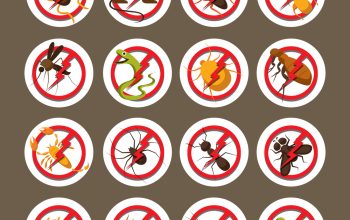The management of wisdom teeth and the prevention of dental risks work hand in hand. Complications can cause severe pain or damage to surrounding teeth. Dental professionals know how to reduce the pain and swelling caused by a wisdom tooth issue. By following a guide to manage wisdom teeth and mitigate risks, patients can get the relief they need without risking additional health complications.
What Are the Causes of Wisdom Teeth Pain?
A lack of space for wisdom teeth is the primary reason for pain. When wisdom teeth are most likely to break through the gums in adolescence, many patients lack room for wisdom teeth. As a result, wisdom teeth can cause pain and discomfort as they push against the molars to erupt. Breaking through the gums is quite uncomfortable for most people, even if they have space for the wisdom tooth.
It is imperative to note, however, that an impacted wisdom tooth can cause more extensive pain. The reason for more extensive pain is that an impacted wisdom tooth may break through the gums at an angle and not move into place correctly. Additionally, an impacted tooth may not push through the gums and create pockets around the molars. Food and bacteria can accumulate under the gums because of these pockets. The accumulation of food and bacteria under the gums can cause damage not only to the wisdom tooth but also to the adult molars that are situated nearby.
Infected Wisdom Teeth
An infected wisdom tooth can cause tremendous pain and place the individual at risk of further complications. Infections can spread from the wisdom tooth and enter the bloodstream, causing infections throughout the body. Symptoms of a severe wisdom tooth infection include swelling of the face, mouth, and neck. Suppose a client has an infected wisdom tooth. In that case, the only option is to visit their dentist to obtain antibiotics to eliminate the infection. A dentist can remove the wisdom tooth once the infection has cleared up and prevent further infections in the future.
An Abscessed Wisdom Tooth
Pus accumulating within the wisdom tooth pulp or between the gum tissue and the tooth’s root creates an abscess. An abscessed wisdom tooth causes pain and discomfort, and the dentist must remove the wisdom tooth to prevent further abscesses. In addition, an impacted wisdom tooth often causes abscesses if the gum flap forms and bacteria and food accumulate inside.
When people cannot reach their wisdom teeth when brushing their teeth, they can develop abscesses. The gum flap also makes it difficult for the person to remove bacteria and food from the wisdom tooth so that it remains clean and germ-free. When the pus flows from the wisdom tooth, the person experiences an unpleasant taste in their mouth.
Dentigerous Cysts Around Wisdom Teeth
It is common for dentigerous or follicular cysts to form around impacted wisdom teeth. According to dentists, cysts are not dangerous and will not cause an infection in the body. Despite this, the cysts become painful and grow in size rapidly. A liquid often fills these cysts, and dentists can drain the fluid to relieve pain.
What Are Remedies for Wisdom Teeth Pain Relief?
Dentists recommend many options for wisdom tooth pain relief. They apply a numbing gel around the tooth to ease pain, and the client takes ibuprofen to control inflammation. Using an ice pack at intervals of 15 minutes relieves the pain and helps to reduce any swelling.
A salt water rinse effectively treats infections, removes abscesses, and reduces inflammation. In addition, many dental professionals recommend placing cloves, tea bags, or onion slices around the wisdom tooth for fast pain relief. However, the only permanent solution for wisdom tooth pain is to extract the tooth.
An oral surgeon takes X-rays of the wisdom tooth and plans its extraction. Impacted wisdom teeth require surgical removal.
Wisdom teeth can cause pain if infected, abscessed, cystic, or impacted. Many dental professionals recommend home remedies and solutions to ease the pain until they can extract the tooth. An infection requires antibiotic treatment, and the patient must wait until the infection has cleared before arranging an extraction. A dental professional takes an X-ray to check the tooth for complications. Visit a dentist for more information about managing wisdom teeth and relieving pain.


